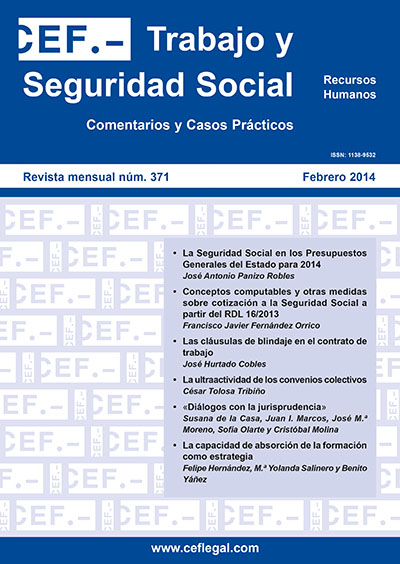Ultraactivity of the collective agreements
DOI:
https://doi.org/10.51302/rtss.2014.2876Keywords:
collective agreements, convention complaint, collective bargaining, labor reformAbstract
The Spanish model of collective bargaining posed problems of excessive centralization and away from the general regulations regarding the specific circumstances of production in the various sectors and companies, and the lack of dynamism to update content quickly and adapt working conditions economic and productive circumstances, even more pressing problems in a situation of severe economic crisis. The labor reform of 2012 has changed substantial aspect of collective bargaining, which may stand affects the regulation of ultraactivity conventions, developing a system of limited effectiveness in time that is greater dynamism in collective bargaining. However, the new regulation poses serious problems and applications can produce gaps in regulation, so that the decisions of the courts, being instrumental in the final configuration of this institution.



















